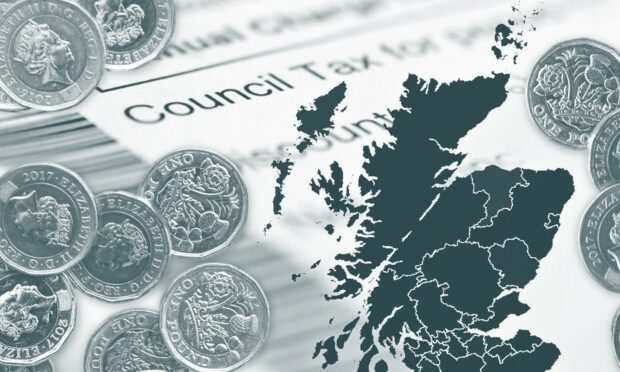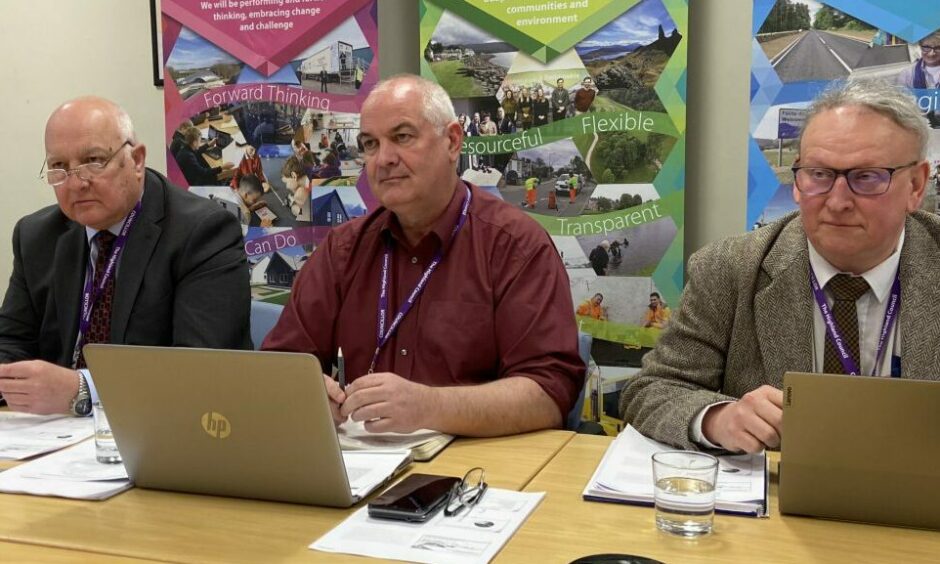Highland Council tax is rising – but not as much as it is in some other parts of the country.
The local authority’s administration has been explaining the thinking behind its decision to raise the tax by 4%.
Some councils have decided to raise their rates by up to 10% – close to the annual rate of inflation recorded last month.
But Highland Council convener Bill Lobban said that figure would compound an already challenging situation for residents.
He said: “Our communities are struggling with cost increases to things like electricity and food.
“We are also not the highest paid economy in the world. It’s really important that this is a budget for our people.
“We could have easily had a 10% rise – but that would have compounded the problems people have.
“One of our main points here is that we are defending our residents.”
Highland Council ‘not currently financially sustainable’
Councillor Lobban was speaking after the local authority released its new budget report for the year.
It will be discussed and finalised at a full council meeting on Thursday.
The contents make for worrying reading.
According to the report, the council is “not currently financially sustainable in the medium to long-term”.
A raft of cost-cutting proposals have been unveiled as the public body tries to plug a £49 million budget gap.
The council tax rise will contribute around £5.4 million to the coffers.
The more significant contribution is the £22 million being added from Highland Council’s reserves – effectively it’s rainy day fund.
While there is certainly a risk in using that money, it does look like it is absolutely pouring right now.
Would a 10% council tax rise have covered the gap?
In short, no.
That is bound to have entered the administration’s thinking when it came to setting out the rise.
Each percentage point rise of council tax would raise between £1.3 million and £1.4 million in revenue.
Even if Highland Council had followed the lead of Orkney Islands Council and proposed a 10% rise, there would still need to be significant savings elsewhere.
Amid the doom and gloom, the council has at least managed to avoid any redundancies.
Council leader Raymond Bremner said: “We have a responsibility to our communities.
“I don’t think anyone saw the financial crisis as being as extreme as we are having to acknowledge just now.
“In terms of raising council tax further, I’m not convinced the extra benefit we would see would be worth putting so many people in a worse position.”
What will the council tax new rates be?
Here are the new annual rates for each council tax band.
You can find out what tax band you are on the Scottish Assessors Association website.
- Band A 2022: £914.87, 2023: £951.46
- Band B 2022: £1,067.34, 2023: £1,110.04
- Band C: 2022: £1,219.82, 2023: £1,268.61
- Band D: 2022: £1,372.30, 2023: £1,427.19
- Band E: 2022: £1,803.05, 2023: £1,875.17
- Band F: 2022: £2,229.99, 2023: £2,319.18
- Band G: 2022: £2,687.42, 2023: £2,794.91
- Band H: 2022: £3,362.14, 2023: £3,496.62


Conversation